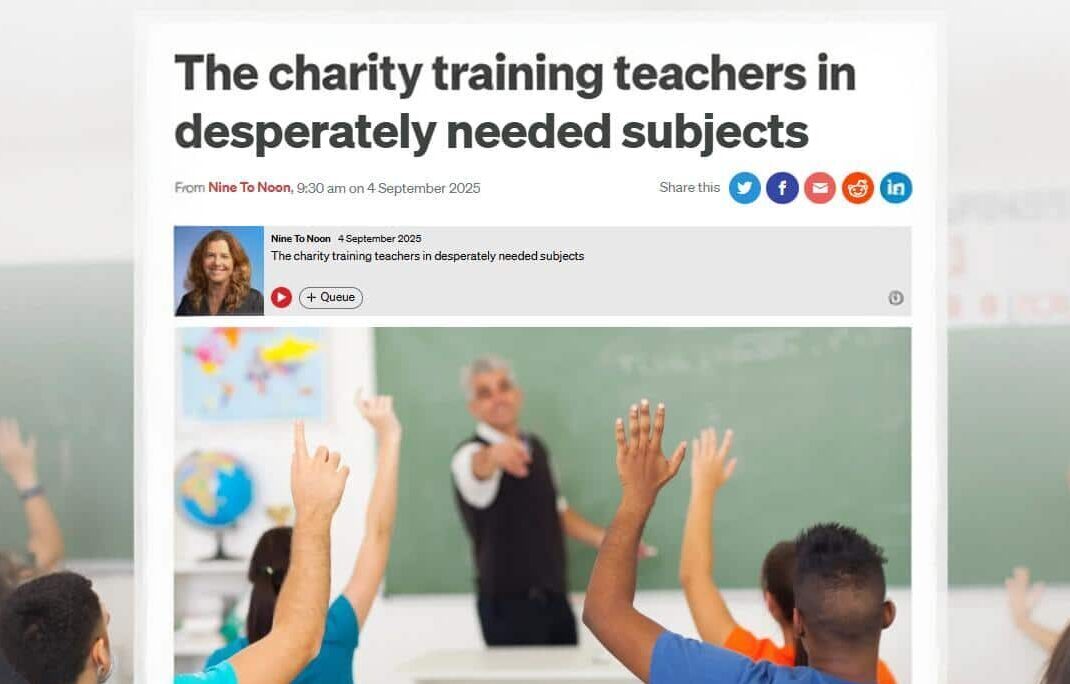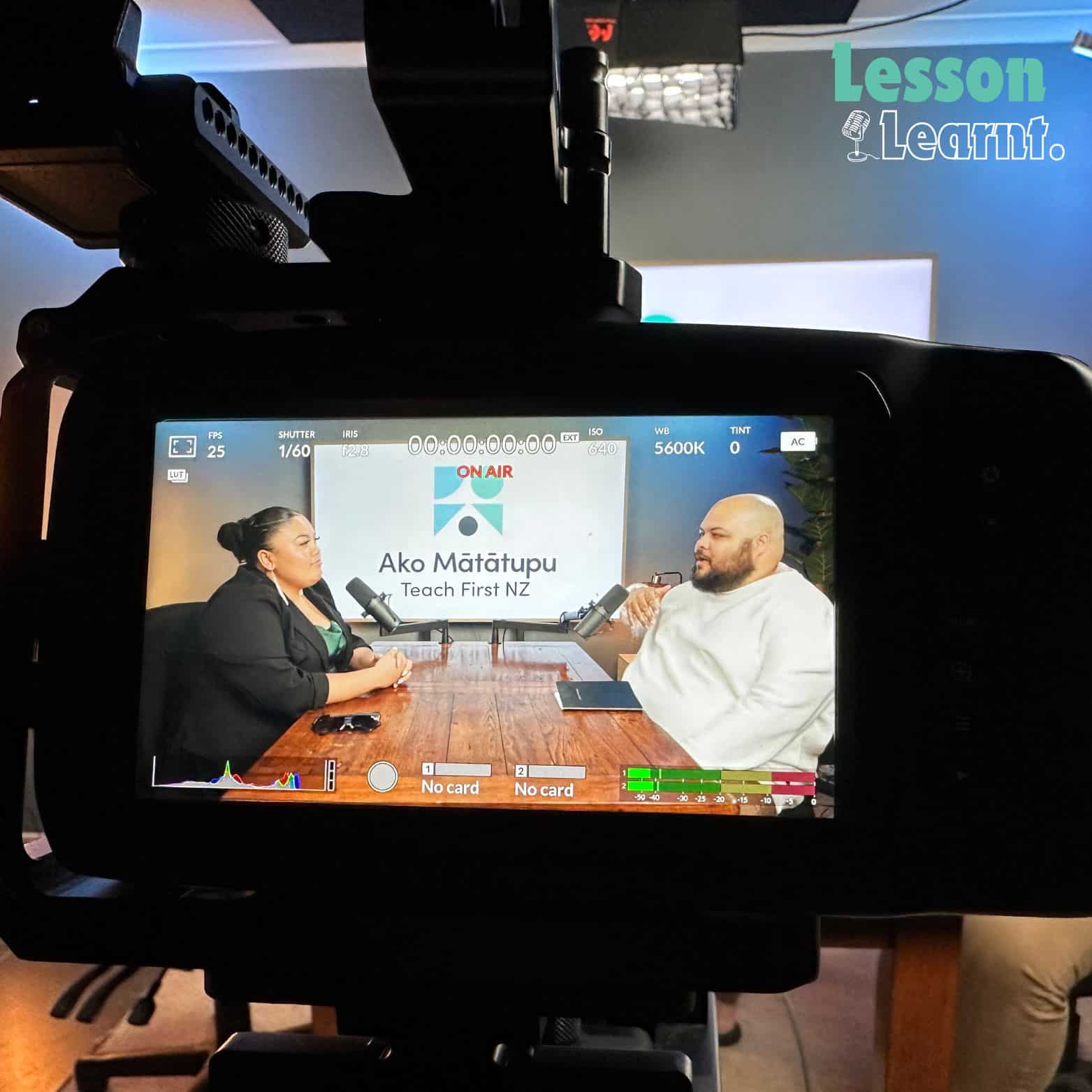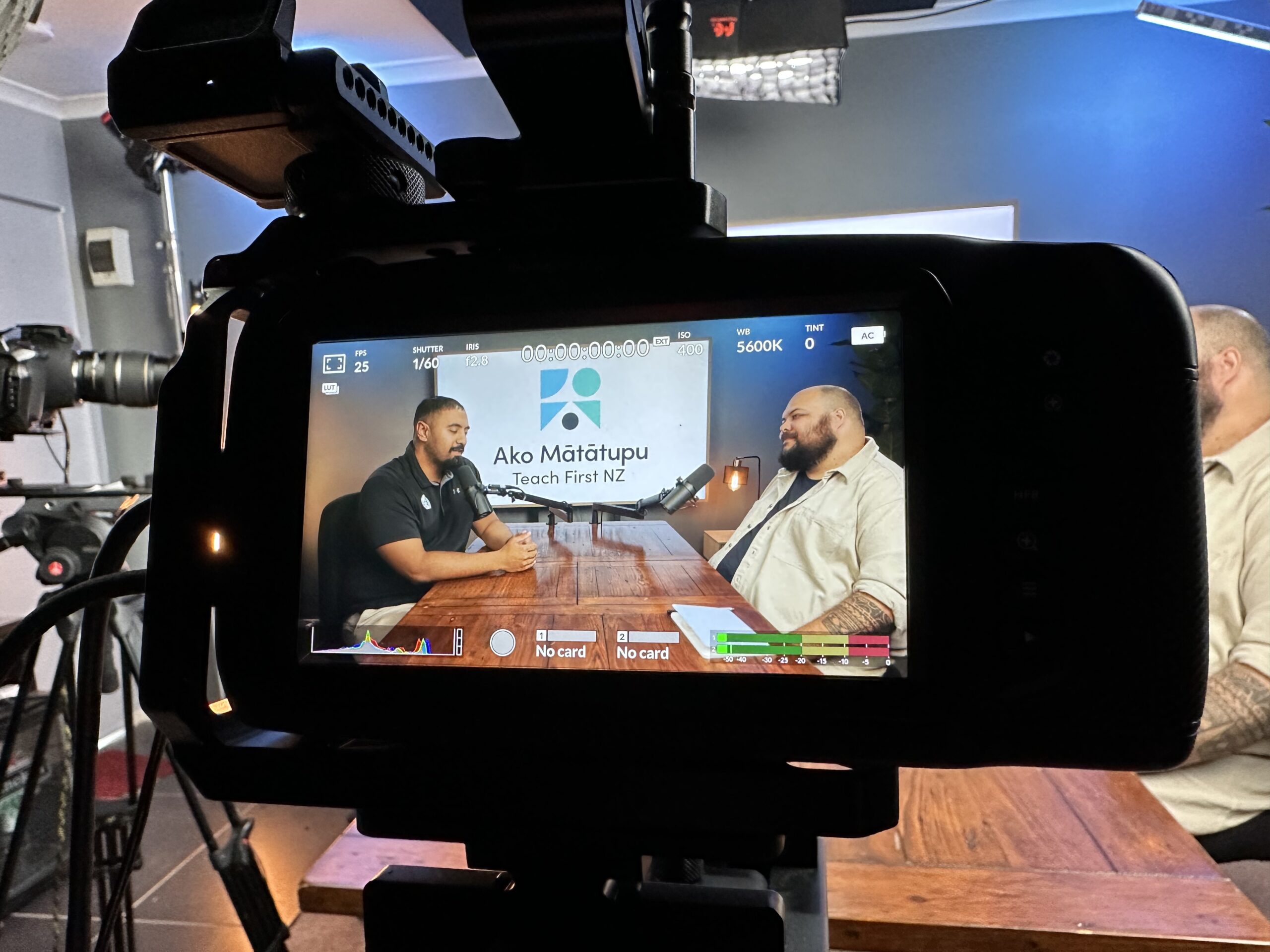Māori education is a contested yet agentic site of hope and aspiration. Find out more about some of the history, present and future of Māori education, and the role that we all can play in making sure that our schools and our society can enable all young people to thrive.
What is Māori education?
For centuries tangata whenua have had effective ways of generating and sharing knowledge between generations in these lands that make up today’s Aotearoa New Zealand. Tohunga have been expert guides, including preparing children with knowledge and skills for their adult roles in life. Whānau have also played a vital role in modelling and passing down instructive stories, skills and values. Learning is relational – on a conceptual as well as inter-personal level. Whakapapa houses knowledge in layers of relationship, allowing for connection to past and future; people and environment.
The history of Māori education in the last 200 years is, unsurprisingly, complex. Schooling has been, on the one hand, an assimilatory colonial tool and a site of tremendous pain and oppression. On the other hand, schooling has been a true site of Māori agency. A huge example of self-determination in education is the Māori renaissance, which from the 1970s saw flaxroots movements for Māori-medium education (think Kohanga Reo and Kura Kaupapa). Agency was also relevant in the early colonial period, too.
Tangata whenua have exercised strategic agency at every turn. The first schools were established in Northland at least two decades before the signing of Te Tiriti o Waitangi, and many Māori were keen explorers of the technologies of reading and writing – in both te reo Māori and te reo Pākehā: for the sake of ideas, for the sake of cross-cultural communication and trade; and for the sake of maintaining sovereignty.
The Education Status Quo:
Inequity is a cold reality. For what started (and continues!) as a project of hope and optimism for so many whānau and akonga Māori, ‘failure’ is too often ascribed to rangatahi Māori and other unfairly marginalised young people in New Zealand education settings. ‘Failure’ belongs in inverted commas because, as Michelle Johansson says, it’s not our kids that are broken, it’s the system that’s broken. Marginalisation can be the product of overt or individual acts of discrimination. Marginalisation can also happen insidiously, when system-wide approaches to assessment or discipline treat students’ special qualities or knowledges as deficiencies.
The impact of patterns of education disparity have huge impacts on (un)employment, illness, life expectancy, hardship and alienation. Equitable education is therefore not only about fairness and thriving for individuals, but also about fairness and thriving for society as a whole. Patchy participation in society is not healthy for democracies, and patchy participation for Indigenous people is an injustice – Aotearoa is, after all, the place on earth where it should make the most sense for us to live, learn, gather, play, work, lead, or simply participate as Māori.

Ka Hikitia:
The Ministry of Education in Aotearoa New Zealand has set a cross-sector vision and plan for education called Ka Hikitia. The plan envisions an education system where “Māori are enjoying and achieving education success as Māori, as they develop the skills to participate in te ao Māori, Aotearoa and the wider world.” At Ako Mātātupu we are proud to support this plan via our innovative teaching and leadership training kaupapa.
Ako Mātātupu and Māori Education:
Ako Mātātupu is a non-profit organisation and private training establishment, with the vision to be world-class and Indigenous-led in our pursuit of an Aotearoa where all young people can realise their potential. We recruit and train exceptional people to become teachers in schools serving lower income communities, and schools with large Māori student populations.
Our shared aim is to respond to the marginalisation of Māori and other unfairly treated students and families by increasing equity in the education system. Beyond the two-year scholarship-funded Teach First NZ Programme, our graduate Kairapu (seekers) make impacts in the broader education ecosystem, such as in school leadership, policy and academia.
What does increasing equity look like? It means re-Indigenising education and giving ample space to Indigenous knowledges and languages in schools; not asking students to leave any part of their identity at the school gates; at all times prioritising relationships and a whānau-friendly environment for learning.
One early example from our teaching and equity movement came from Esther Rakete, our dearly departed and greatly missed Kairapu friend and colleague. Her memory continues to be a blessing, including this recording of her kōrero on seeing and reflecting back the greatness inherent in akonga Māori.
Another influence on our education movement is Cohort 2016 Kairapu and current-day Kaihautū Charles Looker (Ngāpuhi, Te Rarawa, Ngāti Te Ata, Te Ati Awa). Charles was himself raised in the agentic tradition of Māori-led education, at a wharekura, and found the Teach First NZ Programme a productive way to bring an equity approach to English-medium schooling:
Once I graduated from wharekura and began walking in a world outside of te ao Māori I began to feel a discomfort, and see it in young Māori in our education system. Training on the job with Ako Mātātupu meant I could find out what that mismatch was about, and be in a position to immediately respond. When I joined the Teach First NZ Programme I found reassurance and support in like-hearted people on the programme, especially those who were Māori.
There was such a diversity of experiences and knowledges in my cohort. It really did feel like the whakataukī: mā pango, mā whero, ka oti te mahi – nāku te rourou, nāu te rourou, ka ora ai te iwi! It was the same with working with our rangatahi. Witnessing our young people seeing something in themselves that might not have been highlighted to them before was always the beginning of a beautiful story, watching them become brave and being comfortable with who they are, as Māori, and as a young person.
Together, as tangata whenua and as tauiwi, it is our life’s work to make the most of culturally-sustaining pedagogies and approaches to teaching and learning. It is our duty as educators and community-spirited people to make good on the long history of agentic hopes and efforts of iwi and whānau. Together we can all make sure that education is a place of pride and potential for rangatahi Māori, and all young people that call Aotearoa home.
Further Reading:
For one exploration of the historiography of Māori agency in (post)colonial education, check out this provocation from Te Kawehau Hoskins, Kimai Tocker and Alison Jones.
For concrete teaching, learning and school leadership strategies, check out Teaching to the North-East: Relationship-Based Learning in Practice by Russell Bishop. This is a foundational text for Year One participants on the Teach First NZ Programme.


